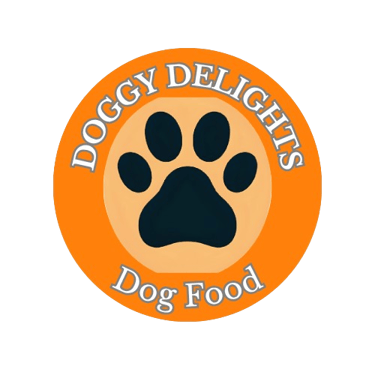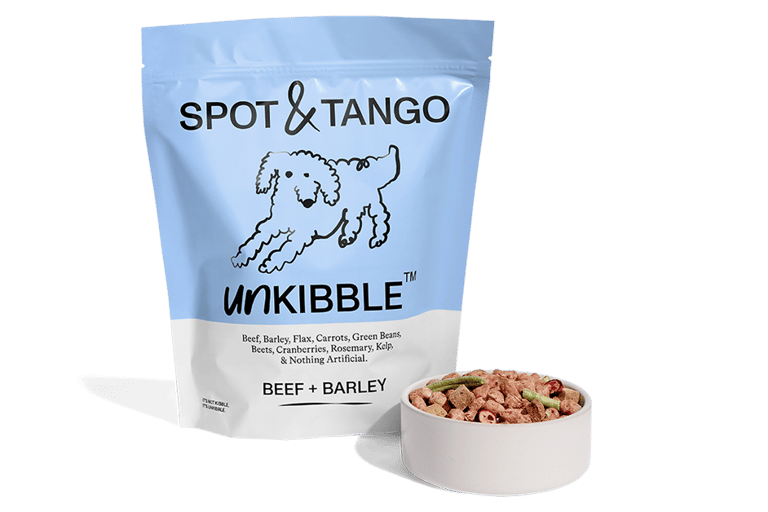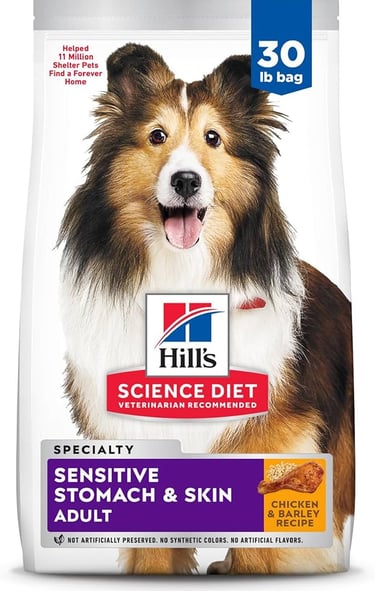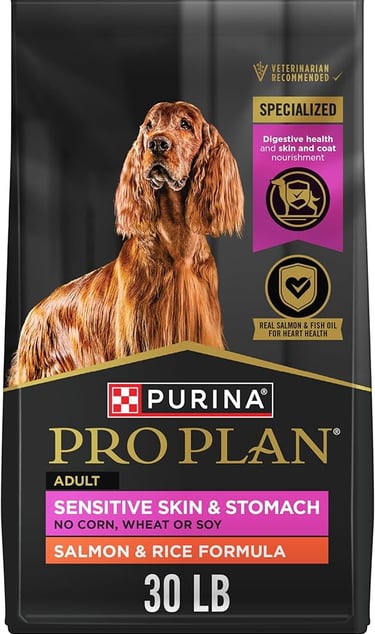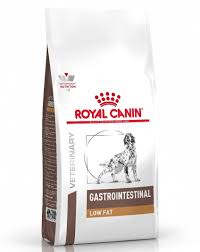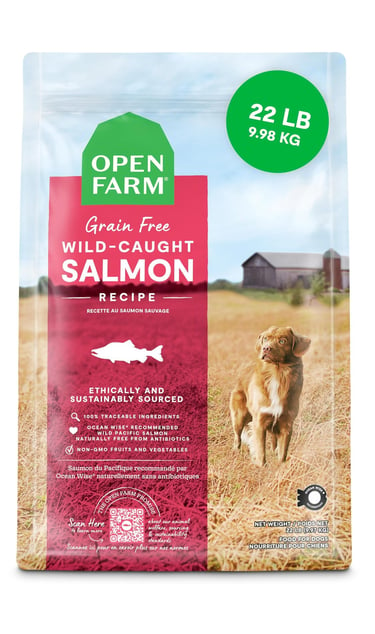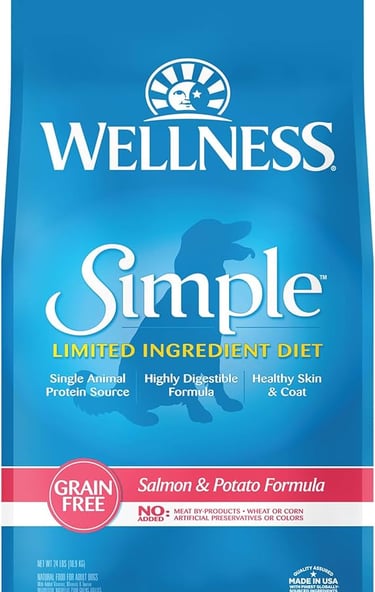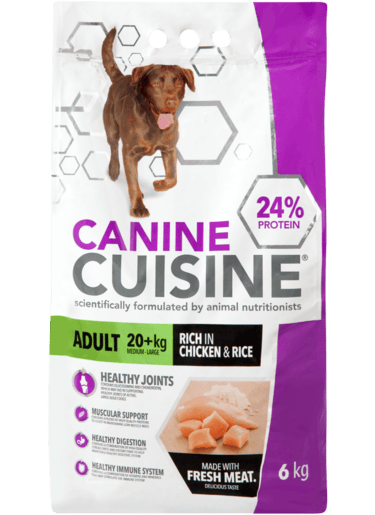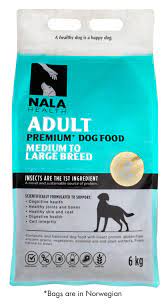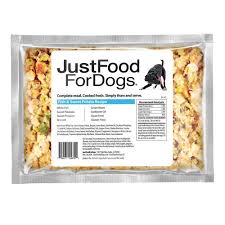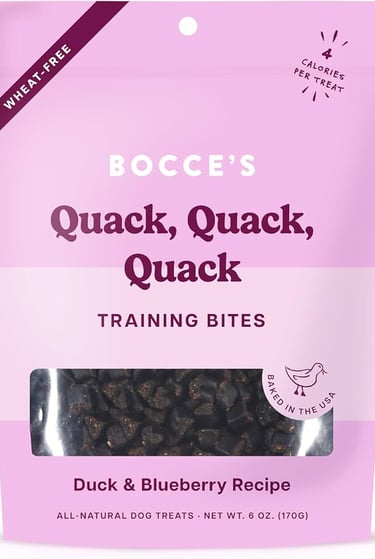Choosing the best dog food for your mixed breed companion involves considering their unique dietary needs, activity levels, and sensitivities. From fresh options like The Farmer's Dog to budget-friendly choices like Taste of the Wild, these top-rated brands ensure your furry friend receives optimal nutrition at every stage of life.






Get the Best Deals
Shop At Amazon.com(My Link)
Free Dog Food Alerts
How to Choose the Correct Dog Food
Calculate Your Dog's Food Type
Related Articles:
1.What are the key ingredients to look for in dog food for sensitive stomachs?
2.How do grain-free dog foods compare to traditional dog foods for sensitive stomachs?
4.How can I tell if my dog's digestive issues are due to a food allergy or sensitivity?
5.What are the benefits of using insect protein in dog food for sensitive stomachs?
Ingredients: Fresh chicken, pumpkin, spinach, and probiotics.
Why It’s Recommended: Made with radically simple, whole ingredients, Spot & Tango’s UnKibble is designed for dogs with severe digestive issues. The no-filler, high-moisture formula aids digestion, and customizable recipes suit individual needs.
Ingredients: Venison, oatmeal, and sunflower oil.
Why It’s Recommended: Purina’s single-source protein (venison) and oatmeal reduce inflammation. Ideal for dogs with grain allergies, this formula is vet-approved and budget-friendly.
5. Open Farm Wild-Caught Salmon & Ancient Grains
Ingredients: Salmon, ancient grains, and pumpkin.
Why It’s Recommended: Open Farm’s wild-caught salmon provides omega-3s for inflammation reduction, while ancient grains offer gentle fiber. Ethically sourced ingredients align with eco-conscious pet owners.
7. Canine Cuisine Specialised Diets Grain-Free
Ingredients: Chicken, potatoes, and pumpkin.
Why It’s Recommended: This grain-free option replaces wheat with potatoes for easier digestion. Rich in fiber, it supports regular bowel movements and reduces bloating.
9. Just Food For Dogs Fish & Sweet Potato (Wet Food)
Ingredients: Cod, sweet potatoes, and green beans.
Why It’s Recommended: Wet food’s high moisture content eases digestion. Fish provides lean protein, while sweet potatoes offer complex carbs for steady energy.






.
2. Identify Triggers
Common culprits include beef, dairy, soy, and high-fat foods.
3. Gradual Transition
Mix new food with the old over 7-10 days to avoid upset.
4. Monitor Symptoms
Track improvements in stool quality, appetite, and energy levels.
Final Thoughts
Dogs with sensitive stomachs deserve tailored nutrition to thrive. Whether your pup prefers insect protein (Nala Health) or traditional recipes (Spot & Tango), the right food can transform their health. Always pair diet changes with vet guidance and gradual transitions for the best results.



Home > Leading Dog Food > Leading Dog Foods for Sensitive Stomachs
1.What are the key ingredients to look for in dog food for sensitive stomachs?
Key Ingredients to Look for in Dog Food for Sensitive Stomachs.
Selecting the right dog food for a sensitive stomach can make a world of difference for your pet’s comfort and health. Here are the essential ingredients and features to prioritize:
1. Easily Digestible Proteins
Choose high-quality, easily digestible proteins such as chicken, turkey, lamb, or fish. These proteins are gentle on the stomach and less likely to cause digestive upset, especially when provided as novel or single-source proteins (like duck, venison, or fish) that your dog hasn’t frequently encountered.
2. Limited Ingredient Diets (LIDs)
Foods with fewer ingredients reduce the risk of triggering food sensitivities. LIDs often feature a single protein and a single carbohydrate source, making it easier to identify and avoid potential allergens.
3. Digestible Carbohydrates
Look for easily digestible carbohydrate sources such as rice, oatmeal, brown rice, or sweet potatoes. These provide energy and fiber without overtaxing the digestive system.
4. Prebiotics and Probiotics
Prebiotics and probiotics support a healthy gut microbiome, aiding digestion and helping to maintain regular bowel movements. Ingredients like beet pulp, chicory root, or specific probiotic strains (e.g., Lactobacillus plantarum) are beneficial additions.
5. Dietary Fiber
Moderate amounts of fiber from sources like sweet potatoes, pumpkin, oats, brown rice, or beet pulp can help regulate digestion and stool quality. Both soluble and insoluble fibers are important for gut health.
6. Omega-3 and Omega-6 Fatty Acids
These healthy fats, often sourced from fish oil or flaxseed, help reduce inflammation and support skin and coat health, which can be compromised in dogs with food sensitivities.
7. Absence of Artificial Additives
Avoid foods containing artificial preservatives (such as BHA, BHT, ethoxyquin), colors, or flavors, as these can irritate sensitive stomachs and contribute to digestive upset.
8. No Fillers or Low-Quality Ingredients
Steer clear of fillers like corn, soy, and wheat, as well as meat by-products and meals of uncertain quality. These are harder to digest and may exacerbate gastrointestinal issues.
Quick Tips
Always consult your veterinarian before making dietary changes, especially if your dog has ongoing digestive issues.
Transition to new foods gradually over 7–10 days to avoid further stomach upset.
Monitor your dog’s response to new ingredients and keep a food diary to help identify triggers.
By focusing on these key ingredients and avoiding common irritants, you can help ensure your dog with a sensitive stomach enjoys better digestion and overall health.
2.How do grain-free dog foods compare to traditional dog foods for sensitive stomachs?
Grain-Free vs. Traditional Dog Foods for Sensitive Stomachs
Choosing between grain-free and traditional dog foods is a common dilemma for owners of dogs with sensitive stomachs. Both options have their merits, and the best choice often depends on your dog's unique needs, sensitivities, and overall health profile.
Benefits of Grain-Free Dog Food for Sensitive Stomachs
Improved Digestion: Grain-free formulas exclude common grains like wheat, corn, and rice, using alternative carbohydrates such as sweet potatoes or peas, which can be easier for some dogs to digest.
Reduced Allergic Reactions: Dogs with grain allergies or intolerances often benefit from grain-free diets, experiencing fewer digestive upsets, less bloating, and reduced itching or skin issues.
Higher Protein, Fewer Fillers: Many grain-free options have higher meat content and fewer fillers, providing more nutrients per bite and supporting muscle health.
Novel Ingredients: Grain-free foods often include novel proteins and limited ingredients, further minimizing potential triggers for sensitive stomachs.
Benefits of Traditional Dog Food for Sensitive Stomachs
Digestible Grains: Not all grains are problematic. Easily digestible grains like rice, oats, and barley can be gentle on the stomach and provide steady energy and fiber, supporting gut health.
Balanced Nutrition: Traditional dog foods often offer a balanced profile of protein, fiber, and micronutrients, making them suitable for many dogs without specific grain sensitivities.
Cost-Effective: Grain-inclusive diets are often more affordable and widely available.
Nutritional Value: Grains contribute essential nutrients such as protein, magnesium, potassium, and fiber.
Considerations and Risks
Not All Dogs Need Grain-Free: Grain allergies are relatively rare. Many dogs digest grains without issue, so grain-free diets are not necessary for every dog with a sensitive stomach.
Potential Health Risks: Some grain-free diets, especially those high in legumes (peas, lentils, chickpeas), have been linked to heart issues like dilated cardiomyopathy (DCM) in certain breeds, though the exact cause is still under investigation.
Consult Your Vet: Always consult your veterinarian before switching to a grain-free diet, especially if your dog is a breed at risk for DCM or has other health concerns.
Which Is Best for Sensitive Stomachs?
Grain-Free: Best for dogs with confirmed grain allergies or intolerances, or those who have not responded well to traditional diets. Look for high-quality, limited-ingredient grain-free foods with novel proteins and easily digestible carbs.
Traditional: Suitable for dogs who tolerate grains well and benefit from the fiber and nutrients they provide. Choose options with gentle grains like rice or oats, and avoid foods with excessive fillers or artificial additives.
Conclusion:
There is no universal answer—the best diet for a dog with a sensitive stomach depends on individual health needs, sensitivities, and how your dog responds to different ingredients. Both grain-free and traditional diets can be beneficial, but careful ingredient selection and veterinary guidance are essential for optimal digestive health
3.Are there any specific brands that are particularly recommended by veterinarians for dogs with sensitive stomachs?
Veterinarian-Recommended Dog Food Brands for Sensitive Stomachs
Several dog food brands stand out for their effectiveness and are frequently recommended by veterinarians for dogs with sensitive stomachs. These brands are recognized for their high-quality, easily digestible ingredients, limited ingredient formulas, and scientific backing.
Top Vet-Recommended Brands
1. Hill’s Science Diet Sensitive Stomach & Skin
Why vets recommend it: This formula is specifically designed for digestive health, using easily digestible proteins and carbohydrates such as chicken and barley. It also contains prebiotics and omega-6 fatty acids to support both gut and skin health. Hill’s is widely trusted in the veterinary community and is often suggested for dogs with food sensitivities or mild gastrointestinal upset.
2. Purina Pro Plan Sensitive Skin & Stomach
Why vets recommend it: Purina’s Sensitive Skin & Stomach line features high-quality proteins like salmon and is formulated with easily digestible carbohydrates such as rice and oatmeal. It includes prebiotics and probiotics to promote gut health and is a popular choice for dogs with both digestive and skin sensitivities.
3. Royal Canin Gastrointestinal Range
Why vets recommend it: Royal Canin’s Gastrointestinal formulas (available in both dry and wet options) are prescription diets designed for dogs with chronic or acute digestive issues. They feature easily digestible proteins, prebiotics, and low-fat options to reduce digestive workload. Many veterinarians prescribe this brand for dogs with severe or ongoing gastrointestinal symptoms.
4. Wellness Simple Limited Ingredient Diet
Why vets recommend it: Wellness Simple offers limited ingredient diets with single protein sources and easily digestible carbohydrates. These formulas minimize potential triggers for food sensitivities and are often recommended for dogs with unexplained digestive upset or allergies.
Specialty and Prescription Options
Hill’s Prescription Diet z/d: Designed for dogs with severe food allergies and intolerances, this hydrolyzed protein diet is often prescribed by veterinarians for dogs who do not respond to standard sensitive stomach diets5.
Royal Canin Veterinary Gastrointestinal Low Fat: Especially recommended for dogs with pancreatitis or fat intolerance, this formula supports digestive health while minimizing fat content.
What Makes These Brands Stand Out?
Easily digestible proteins and carbs (e.g., chicken, salmon, rice, oatmeal)
Limited ingredient formulas to reduce potential allergens
Prebiotics and probiotics for gut health
Low-fat options for dogs with specific digestive conditions
Backed by scientific research and formulated to be "complete and balanced"
Conclusion
For dogs with sensitive stomachs, brands like Hill’s Science Diet, Purina Pro Plan, Royal Canin, and Wellness Simple are consistently recommended by veterinarians due to their focus on digestibility, nutritional balance, and scientific formulation. Prescription options from Hill’s and Royal Canin are available for dogs with more severe or persistent issues. Always consult your veterinarian to determine the best diet for your dog's specific needs.
4.How can I tell if my dog's digestive issues are due to a food allergy or sensitivity?
How to Tell if Your Dog’s Digestive Issues Are Due to a Food Allergy or Sensitivity
Distinguishing between food allergies and sensitivities (intolerances) in dogs can be challenging, as their symptoms often overlap. Here’s how you can start to tell the difference and what steps to take:
Common Symptoms to Watch For
Both food allergies and sensitivities can cause:
Gastrointestinal upset: vomiting, diarrhea, gas, bloating, abdominal discomfort, increased flatulence, runny or mucous-like stools.
Skin issues: itching, redness, rashes, hair loss, chronic licking or chewing, especially on paws, ears, or around the rear.
Ear infections: recurrent or chronic ear infections may be linked to food reactions.
Key Differences Between Allergy and Sensitivity
Food Sensitivity (Intolerance):
Caused by the inability to digest certain ingredients (like lactose or specific proteins).
Primarily leads to digestive symptoms: diarrhea, vomiting, gas, bloating.
Symptoms can appear the first time the food is eaten and typically do not involve the immune system.
Usually does not cause severe skin reactions or immune-mediated responses.
Involves an immune system response to a specific ingredient, usually a protein.
Can cause both digestive symptoms and skin issues: itching, redness, hives, swelling, chronic ear or skin infections.
May develop after repeated exposure to the allergen; symptoms can worsen over time.
Severe cases can lead to more dramatic reactions, including facial swelling or, rarely, anaphylaxis.
How Veterinarians Diagnose the Cause
No reliable blood or skin test exists for food allergies in dogs.
The gold standard is a strict elimination diet trial:
Feed your dog a special hypoallergenic or novel protein/carbohydrate diet for 8–12 weeks—no other treats, table scraps, or flavored medications allowed.
If symptoms resolve, a “food challenge” (reintroducing the old food) can confirm the diagnosis if symptoms return.
This process helps determine if the issue is immune-mediated (allergy) or a non-immune sensitivity.
When to See Your Veterinarian
If your dog has ongoing digestive issues, skin problems, or ear infections, consult your vet. They can rule out other causes and guide you through a proper elimination diet trial.
Bottom line:
Because symptoms overlap, only a veterinarian-guided elimination diet can reliably distinguish between a food allergy and a food sensitivity in dogs. If your dog is experiencing chronic digestive or skin issues, work closely with your vet for a proper diagnosis and treatment plan.
5.What are the benefits of using insect protein in dog food for sensitive stomachs?
Benefits of Using Insect Protein in Dog Food for Sensitive Stomachs
Insect protein is rapidly gaining popularity as a novel solution for dogs with sensitive stomachs, and for good reason. Here are the key benefits supported by recent research and veterinary recommendations:
1. Hypoallergenic and Allergy-Friendly
Novel Protein Source: Insect protein, particularly from Black Soldier Fly larvae (BSFL), is considered a novel protein for most dogs, meaning they have not been exposed to it before. This greatly reduces the risk of triggering allergic reactions, which are common with traditional proteins like chicken, beef, or dairy.
Lower Allergenic Potential: Insect protein lacks many of the molecular compounds responsible for immune responses, making it an excellent choice for dogs with food allergies or sensitivities.
2. Highly Digestible
Gentle on the Stomach: Insect protein is highly digestible, with a digestibility rate of over 85%. This means dogs can efficiently absorb and utilize its nutrients, reducing the risk of gastrointestinal upset such as vomiting, diarrhea, or bloating.
Natural Prebiotics: Insect protein contains chitin, a natural prebiotic fiber that supports gut health and promotes a balanced microbiome, further aiding digestion and stool quality.
3. Complete and Balanced Nutrition
Full Amino Acid Profile: Insect protein provides all the essential amino acids required for muscle maintenance, immune function, and overall canine health.
Rich in Essential Fatty Acids: It contains healthy fats, including omega-6 fatty acids, which support skin and coat health—important for dogs prone to allergy-related skin issues.
Packed with Nutrients: Insects are naturally rich in vitamins, minerals, and even glucosamine, which supports joint health and reduces inflammation.
4. Improved Gut Health
Supports Digestive Function: The combination of high digestibility, prebiotic content, and balanced nutrients helps regulate digestion, reduce bloating, and improve stool consistency for dogs with sensitive stomachs.
Success Stories: Many owners and veterinarians report significant improvements in dogs' digestion, reduced loose stools, and better overall vitality after switching to insect-based diets.
5. Sustainable and Eco-Friendly
Lower Environmental Impact: Insect farming requires significantly less land, water, and energy compared to traditional livestock, producing far fewer greenhouse gas emissions.
Ethical Choice: Insect protein is considered more humane and sustainable, aligning with the values of environmentally conscious pet owners.
In summary:
Insect protein offers a hypoallergenic, highly digestible, and nutritionally complete alternative for dogs with sensitive stomachs. It not only helps manage food allergies and intolerances but also supports gut health and overall well-being, all while being gentle on the planet.
